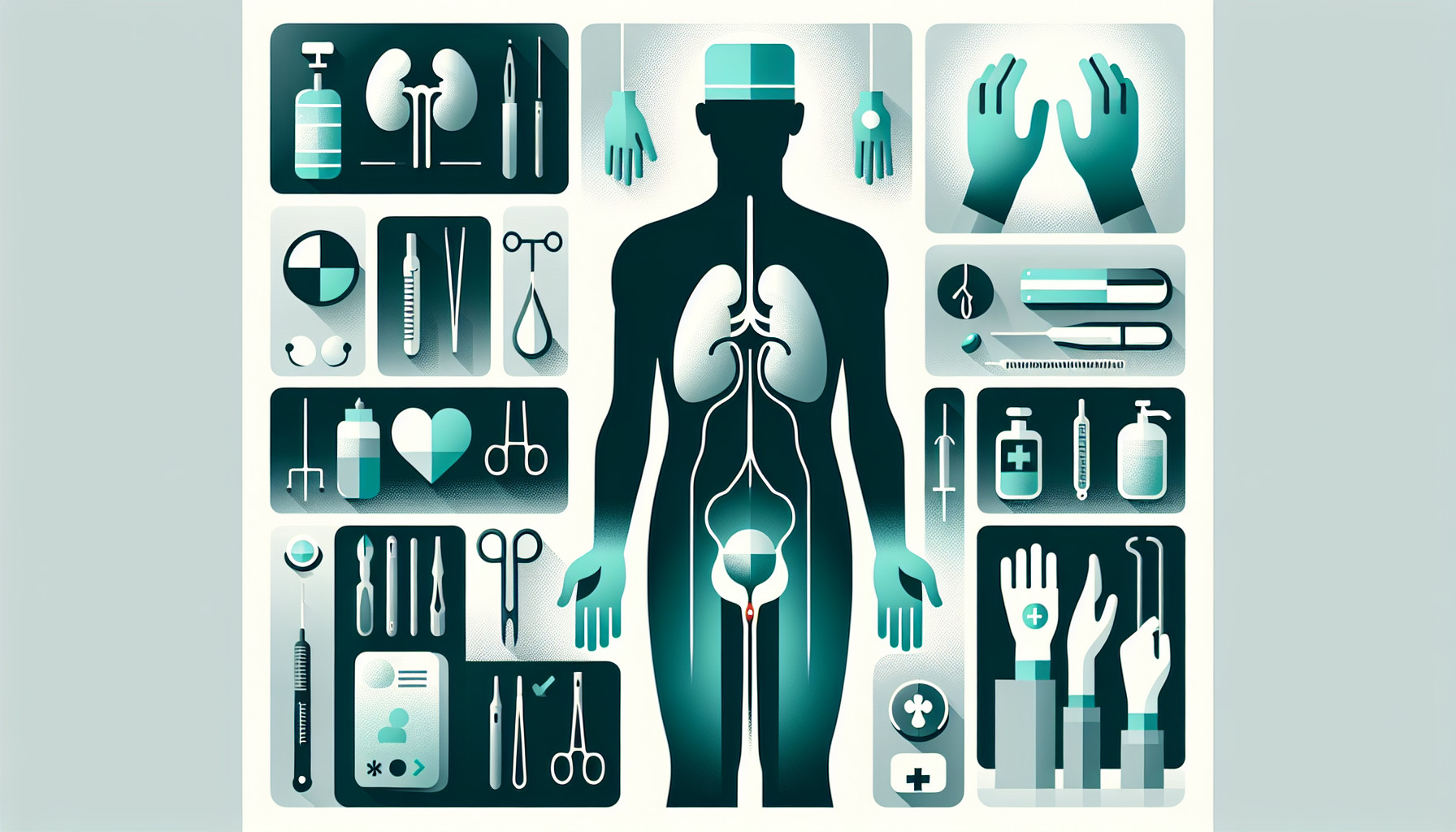Our Summary
This research paper is a review of 190 articles discussing the short-term outcomes of minimally invasive live donor nephrectomy, which is a surgical procedure to remove a kidney from a living donor for transplant. The researchers found that the complication rate during the operation was 2.3%, mainly due to bleeding, and the complication rate after the operation was 7.3%, mainly due to infections. The death rate was extremely low, at 0.01%. The authors concluded that this type of surgery is safe with low risk of complications or death. The findings can be used to better inform potential donors about the risks and benefits of the procedure.
FAQs
- What is the complication rate during the operation of a minimally invasive live donor nephrectomy?
- What were the main types of complications found after the operation?
- According to the research, how safe is a minimally invasive live donor nephrectomy?
Doctor’s Tip
One helpful tip a doctor might tell a patient about nephrectomy is to make sure to follow post-operative care instructions carefully, including taking prescribed medications, attending follow-up appointments, and avoiding strenuous activities until fully healed. It is also important to maintain a healthy lifestyle, including regular exercise and a balanced diet, to support overall kidney health and function after surgery.
Suitable For
Patients who are typically recommended for nephrectomy include:
Living kidney donors: Individuals who choose to donate one of their kidneys to a family member, friend, or stranger in need of a kidney transplant.
Patients with kidney cancer: Nephrectomy may be recommended for patients with localized kidney cancer to remove the tumor and prevent the spread of cancer to other parts of the body.
Patients with polycystic kidney disease: Nephrectomy may be recommended for patients with polycystic kidney disease to alleviate symptoms such as pain, high blood pressure, or kidney infections.
Patients with kidney stones: Nephrectomy may be recommended for patients with large or obstructing kidney stones that cannot be treated with other methods such as lithotripsy or ureteroscopy.
Patients with kidney trauma: Nephrectomy may be recommended for patients with severe kidney injuries that cannot be repaired through conservative management.
Patients with end-stage renal disease: Nephrectomy may be recommended for patients with end-stage renal disease who are undergoing kidney transplant surgery to remove the diseased kidney and make room for the new donor kidney.
Overall, nephrectomy is a safe and effective surgical procedure for a variety of patients with kidney-related conditions. It is important for patients to discuss the potential risks and benefits of the procedure with their healthcare provider to determine if nephrectomy is the most appropriate treatment option for their individual situation.
Timeline
Before nephrectomy:
- Patient undergoes various tests and evaluations to determine if they are a suitable candidate for the surgery
- Patient may need to make lifestyle changes, such as quitting smoking or losing weight, to reduce surgical risks
- Patient discusses the procedure with their healthcare team and receives information about the risks and benefits
After nephrectomy:
- Patient is monitored closely for any complications, such as bleeding or infection, in the immediate post-operative period
- Patient may experience pain and discomfort at the surgical site
- Patient begins a recovery process that includes gradually increasing physical activity and monitoring kidney function
- Patient may need to take medications to manage pain and prevent infections
- Patient may require follow-up appointments with their healthcare team to monitor their overall health and kidney function
What to Ask Your Doctor
- What are the potential risks and complications associated with nephrectomy?
- What is the success rate of the procedure for removing the kidney?
- How long is the recovery time after a nephrectomy?
- Will I need to make any lifestyle changes after the surgery?
- How will my kidney function be affected after the removal of one kidney?
- Are there any long-term effects or complications I should be aware of after the surgery?
- Will I need to take any medications or undergo any additional treatments after the surgery?
- How often will I need to follow up with my doctor after the procedure?
- What are the chances of the kidney being rejected if it is used for transplant?
- Are there any alternative treatment options to consider before undergoing a nephrectomy?
Reference
Authors: Kortram K, Ijzermans JN, Dor FJ. Journal: Transplantation. 2016 Nov;100(11):2264-2275. doi: 10.1097/TP.0000000000001327. PMID: 27428715
